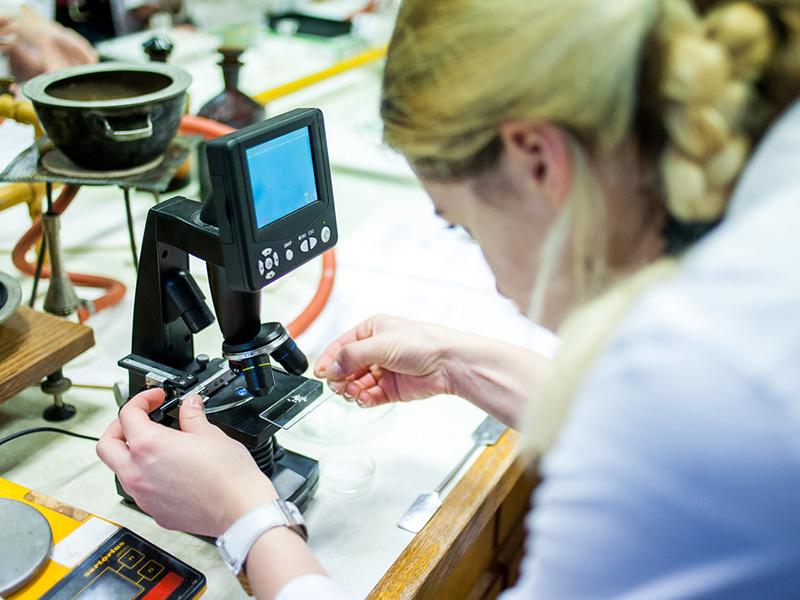When upskilling, how can we put the focus on learners applying their new skills in real-world settings? A competency-based approach could be the answer. Our new Certificate in Clinical Supervision, launched in 2023, aims to develop the capabilities of senior allied health professionals to train their juniors. The course is targeted towards them – a diverse group of healthcare professionals serving across specialisations such as physiotherapy, occupational therapy, speech therapy, dietetics and nutrition, diagnostic radiography and radiation therapy.
Here, we’ll offer insights on how clinical supervision focuses on patient safety and improved patient outcomes. We want to equip allied health professionals with intermediate-level competencies to improve their effectiveness in clinical supervision. Indirectly, we hope the course also helps promote a culture of teaching and learning, and the well-being of health professionals in the workplace.
What is the Certificate in Clinical Supervision?
In defining the learning outcomes, we referenced the Skills Framework for Healthcare, an initiative designed by SkillsFuture Singapore in 2018 to promote skills mastery and lifelong learning for the Singapore healthcare workforce. The framework helped the team develop the course curriculum and assessment, providing them with a list of competencies expected for each of the proficiency levels for the specific role of allied health professionals in clinical teaching and supervision. The course content is applicable across all clinical supervisors who teach generic clinical supervision and embeds teaching skills that can be used across the different allied health professions.
- How to develop a digital competency framework everyone can benefit from
- Unifying theoretical and clinical education in a medical curriculum
- Start with why, part one: taking a new approach to curriculum development
The course taps into a diverse range of learning activities and modes of assessment. The learning activities span e-learning, workshops, peer feedback, group coaching, workplace application and reflection, while multiple modes of assessment include quizzes, short-answer questions, workplace assessment and video presentations.
There are also objective structured teaching exercises, which involve simulated scenarios where learners are assessed on their application of educational skills during interaction with student actors.
There are several things to consider when developing competency-based assessments. A good assessment is when learners can demonstrate the application of what they have learned, is feasible for faculty and learners working full-time, and has a simple enough assessment rubric to set performance expectations.
The learners who were unsuccessful on the first attempt at any of the competency-based assessment requirements were required to resubmit. First, we gave them feedback to help them understand what they were lacking. Subsequently, we allowed them to resubmit their assessment to demonstrate that they could fulfil the competencies at their workplace, with some flexibility given on the reattempt duration.
Why the need for authentic assessment and a competency-based approach?
Senior health professionals aren’t required to attend the clinical supervision course before taking on the role of a clinical supervisor. Typically, they are expected to support the development of students or younger professionals as they become more experienced clinicians. Many of them learn to become clinical supervisors on the job.
However, demand for advanced clinical supervision competency among health professionals has increased because of macro changes in Singapore’s healthcare sector, including the introduction in 2013 of a pre-employment clinical training fund and a mandatory supervisory framework for conditionally registered allied health professionals. As a result, this has increased the accountability of allied health professionals departments in providing high-quality clinical supervision, training and assessment.
About half the learners came from hospitals, and the rest from community care organisations, such as daycare centres and special schools. Many of our learners want to be better clinical supervisors and are intrinsically motivated to engage in continuous professional development.
As such, the certificate provides an opportunity for clinical supervisors to learn educational theories, reflect on their supervisory practices and engage in collaborative learning with other supervisors. Clinical supervisors face challenges in structuring clinical training and assessment in the workplace because of variations in patients’ medical and social conditions, making it challenging to offer a structured clinical training programme in healthcare settings.
In addition, clinical supervisors encounter challenges in addressing some difficult learning situations. This includes managing learners who present with diverse learning profiles – for example, learners who are easily anxious when treating patients or those who have difficulty applying knowledge learned in school to practice in clinical care. The approach of using authentic assessments directly supports them in solving clinical supervision challenges in the workplace. In some settings, professionals work in small teams, so learning together with other clinical supervisors and faculty from different settings can promote cross-learning of real-world practices.
How the certificate has evolved from its first two years to its third year
Both the full course and accelerated course were conducted in the first two years, 2023 and 2024. The competency-based assessments remained the same throughout both the full and accelerated courses. The full course spans about 50 hours over four months and comprises e-learning, a face-to-face workshop and a coaching session. In contrast, the accelerated course spans 28 hours because it recognises the prior learning and workplace experiences of health professionals with clinical supervision roles.
For the third year, in 2025, we will run only the full course because we observed that some senior health professionals had enrolled in the full course rather than the accelerated course. While the accelerated course pathway offers a shorter duration, less time spent on face-to-face workshops and online group coaching and lower course fees, the social aspect of collaborative learning, where both senior and junior health professionals learn from one another in the course, provides an invaluable experience for all.
Improving patient outcomes through advanced clinical supervision competency
The positive feedback gathered from four cohorts of learners in the first two years centred around the high relevance and applicability of the content to the actual clinical setting, with the need for learners to demonstrate competency to pass the assessments.
From the reflections of learners on the clinical supervisor course, many of them have made or planned to make changes to improve the quality of training and culture of learning at their workplaces. These include:
- developing discipline-specific clinical training programmes with clear learning objectives, and aligned assessment and training, to address variations in patients with different medical conditions
- applying different conversational frameworks to facilitate learning with different learning challenges (for example, Gibbs framework to facilitate reflection, GROW to facilitate coaching to improve learner ownership)
- starting a community of practice among clinical supervisors to co-learn with peers on practical clinical supervision experiences.
How can you start a similar course? Here are my tips:
1. Remember that assessments need to be relevant and preferably directly applicable for use in the workplace.
2. Because most learners and faculty are adults and need to juggle multiple commitments, make sure there is flexibility in the timeline for completion of course assessments.
3. A hybrid mode of learning comprising both online and face-to-face learning activities, with a variety of competency assessments, is an effective approach in competency-based education.
Heidi Tan is associate professor at Singapore Institute of Technology and senior principal occupational therapist at Tan Tock Seng Hospital. Celestine Seet is assessment specialist at Singapore Institute of Technology.
If you would like advice and insight from academics and university staff delivered direct to your inbox each week, sign up for the Campus newsletter.




comment